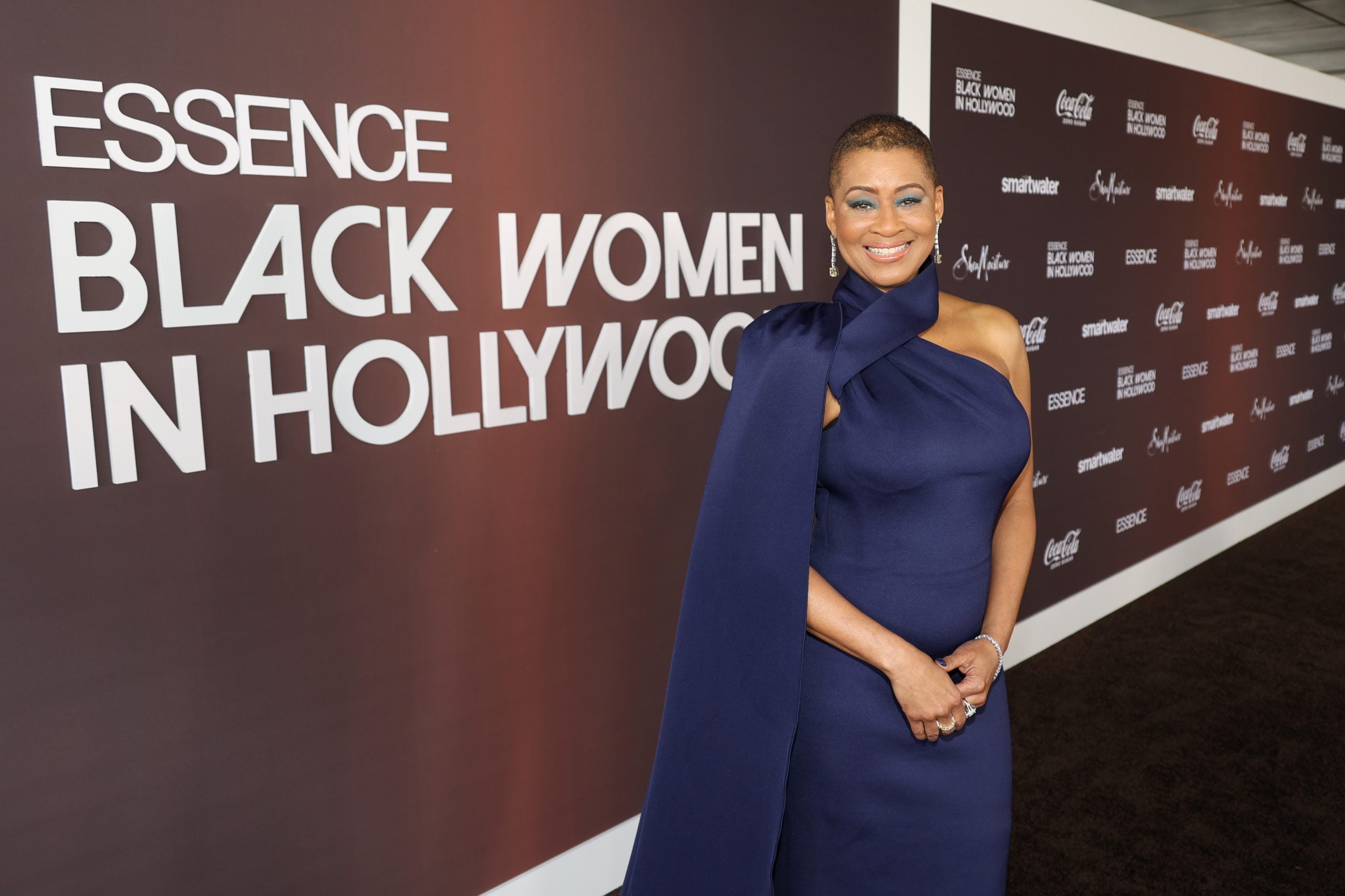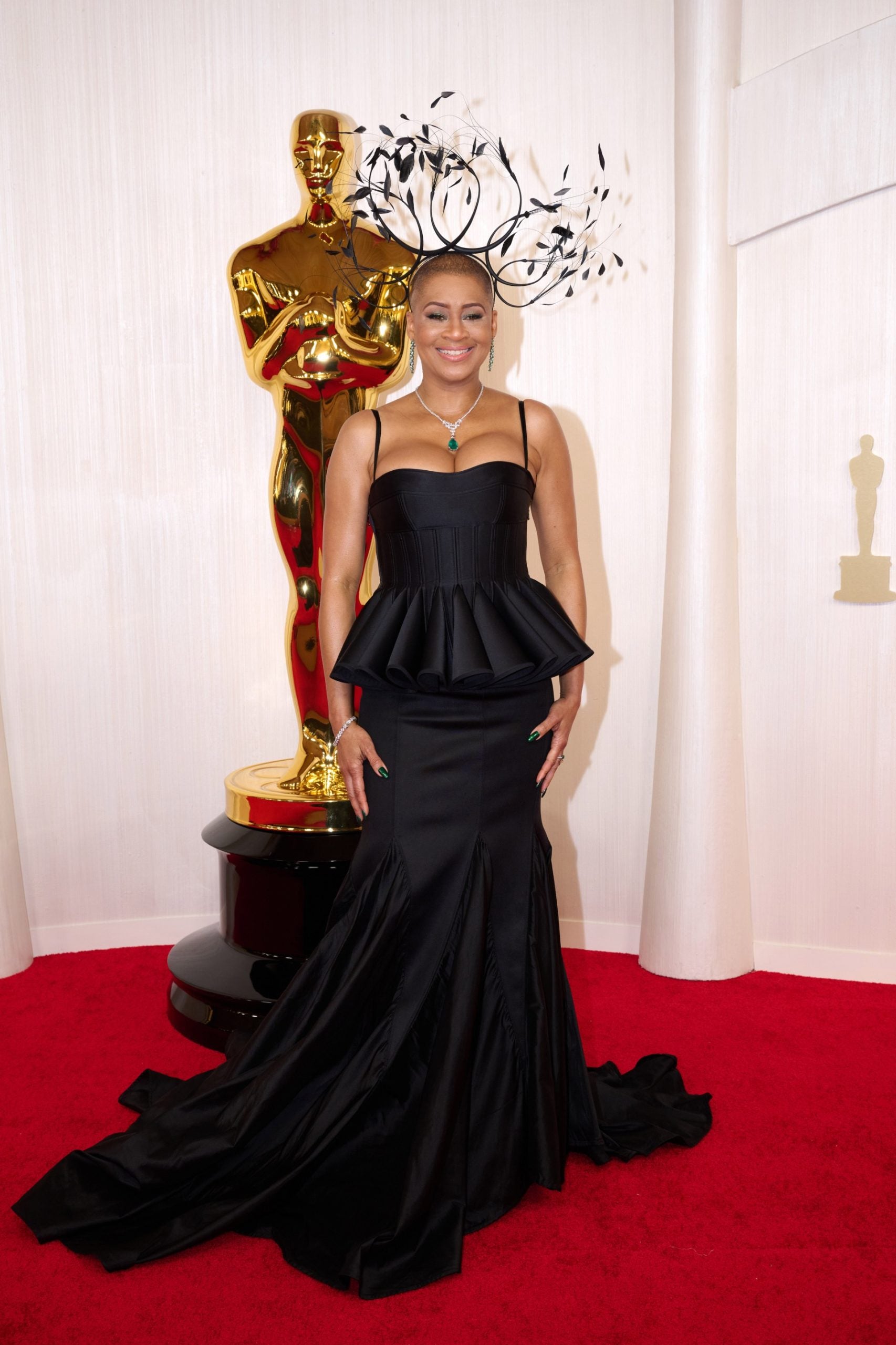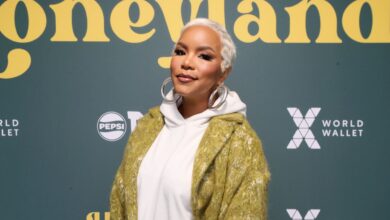Jacqueline Stewart, Director And President Of The Academy Museum Of Motion Pictures Leads With Purpose


Although the 96th Academy Awards, which honored the best and brightest in Hollywood, took place last Sunday, March 10th, the Academy Museum of Motion Pictures celebrates film and the artistic pursuit of making movies all year round. With unique programming, like a tribute to Midnight Movies, a live commentary presentation of John Waters’s first two films, a conversation on climate change and activism featuring Jane Fonda, Earth Day programming featuring Arctic Indigenous films; a retrospective series on Korean actor Youn Yuh-jung in-person; and more, the museum aims to educate and inspire film enthusiasts in Los Angeles and beyond. Jacqueline Stewart is at the helm of this diverse programming, as she was named the institution’s director and president in January 2021.
Stewart is a scholar, educator, programmer, author, film archivist, and host of “Silent Sunday Nights” on Turner Classic Movies (TCM). Before becoming Director and President of the Academy Museum, Stewart served as the museum’s Chief Artistic and Programming Officer. She is also the chair of the National Film Preservation Board (NFPB), where she has led the drafting of reports on diversity, equity, and inclusion on the National Film Registry and in the film archival profession. She has served on the Association of Moving Image Archivists (AMIA) boards, the Society for Cinema and Media Studies (SCMS), and the Chicago Film Archives.
In 2015, Stewart co-curated the five-disc set Pioneers of African American Cinema for Kino Lorber. She is the author of Migrating to the Movies: Cinema and Black Urban Modernity and co-editor of L.A. Rebellion: Creating a New Black Cinema and William Greaves: Filmmaking as Mission.
Stewart is the recipient of numerous awards and honors, including a 2021 MacArthur Fellowship, AMIA’s 2023 Silver Light Award, the Portland Art Museum’s PAM CUT 2023 Cinema Unbound “Groundbreaker” Award, and the 2024 SCMS Distinguished Career Achievement Award. She was inducted into the American Academy of Arts and Sciences in 2018. Stewart earned her Ph.D. in English from the University of Chicago and her BA in English from Stanford University.
Simply put, she is well-qualified for her role and to highlight the museum’s commitment to excellence in movies. As a film enthusiast herself (she loves Julie Dash’s iconic film Daughters of the Dust), in her role, she aims to educate, inspire, and uplift diverse communities by connecting them to the beauty of filmmaking. Stewart once said, “Our ambition in opening the Academy Museum was to give Los Angeles and the world an unprecedented institution for understanding and appreciating the history and culture of cinema, in all its artistic glory and power to influence and reflect society. I feel deeply honored to have been chosen for this new role and look forward to working with our Board of Trustees, our COO and General Counsel Brendan Connell Jr., our wonderfully talented staff, and with Bill Kramer and the Academy, as we continue to advance our mission.”

After the flurry of the 2024 OSCARS and our 17th annual Black Women In Hollywood Awards (hosted at the Academy Museum of Motion Pictures this year), we caught up with Stewart about the work she’s doing at the iconic institution, what inspires her, and her upcoming goals.
ESSENCE: What keeps you excited about your role?
Jacqueline Stewart: I’m always most excited when I see young people entering the museum. We offer free tours, especially to public school students in Los Angeles, and we provide transportation for them to come and check out our exhibitions. Our museum is free to anybody 17 and under and always will be.
I get most excited when I see young people checking out our exhibitions and coming to our screenings because we’re screening films almost every night of the week. We have a Teen Council of young people who advise us on what kind of programming we should do to attract their peers. So, this role is about exposing young students to stories and information they can’t get anywhere else. Of course, we hope some of them will become filmmakers or find ways to think about how their own stories are important and find avenues for telling their own stories.
That’s powerful. How does it feel to be a Black woman at your post in the film industry?
It’s really meaningful. I’ve always felt a tremendous sense of responsibility in everything I do. I never feel like I’m entering any role or room alone. Sometimes, it feels like a lot of pressure, but it’s not just pressure; there’s also great power in it. I don’t mean to digress about the work we’ve done around Hattie McDaniel and her history-making Oscar win for playing the role of Mammy in Gone With the Wind, but it’s connected to your question. Because, you know, in our Academy Awards History gallery, we display Oscars across the years in many fields. We needed to recognize Hattie McDaniel, even though her actual Oscar has been missing for many years. So we have an empty case where her Oscar would be if we had it because that was our way of representing the importance of her win. It also gets visitors to pause and just kind of think about, well, why is it missing? And what was her experience? We made a very powerful curatorial decision, and it got people to think about her experience in Hollywood during that era of classic Hollywood cinema. We can do remarkable work to restore some of the wrongs of the past.
Thank you for sharing that. It’s a perfect segue to my next question: Can you share how you are expanding the Black presence at the museum regarding storytelling?
We now have an exhibition focused on John Singleton’s Boys In The Hood. We continue to think about ways to incorporate Black stories through our stories of cinema exhibition in our temporary exhibitions. And it’s what we do in the galleries and through our programming. We had robust Black History Month programming, of course. But then we’re also always thinking about combining a look at Black film history with other film history. So that’s happening in our education programs and then our film screenings all the time.
Let’s get into the state of Black Hollywood. What do you think the state of Black Hollywood is today?
Thank you for that question. I mean, there’s been baby steps. If you look at history, we have moments where there seems to be a lot more progress and opportunity, and then it goes back, and then it comes up again and goes down again. But it seems like those waves that ebb and flow are getting smaller and smaller. It was incredible to see the wealth of Black talent, actors, writers, and directors at the awards throughout the award season; the work that people you know are accomplishing is so impressive. It’s more robust than it’s been in a very long time. I think that the murder of George Floyd and the opening up of some spaces for more Black voices has gotten to a kind of critical mass right now. And there is, at least in our community, a very strong sense of urgency and the unwillingness to let the door get closed again like there’s this real sense of unwillingness to go backward.
So, let’s also get into Black Women in Hollywood. I mean, that was such an epic day! How did you all partner with us?
We were so honored that the ESSENCE team approached us to be the venue where it would happen and to want the museum to be the space and backdrop for this incredible event. I know I was working in the room because I wanted people to return and engage in our programming at the museum. So, it just meant a lot to introduce the museum to that incredible community. However, knowing that ESSENCE is such a legacy and globally impactful media empire, people who did not attend would see that it was more than just a community gathered; it felt like a reunion. And knowing that the Academy Museum is a space where that kind of Black family reunion can happen is tremendously meaningful.
What’s next for you?
So you know, we just had the 96th Oscars, meaning 2028 will be the 100th Oscars. So, I am thinking a lot about how we will commemorate that important anniversary; the Academy has its 100th anniversary in 2027. So, thinking a lot about 2027 and 2028, what we want to say about the first 100 years of the Academy, and how we will begin to conceptualize what the next 100 years of the Academy will look like. So that’s a big project I have with my teams right now.
Regarding personal goals, I have been in Los Angeles for almost four years and want to get to know the city better. The ESSENCE luncheon was a great example; many dynamic women artists are doing this work. I know a lot of them professionally, but I’m hoping that I can deepen and broaden some of my relationships with people who are in this city and get to know them as a South Side of Chicago girl; there’s a lot about Los Angeles and Southern California that I am looking forward to exploring.
Source link : www.essence.com























































